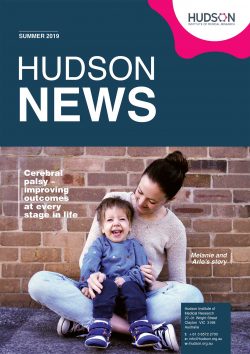This year as part of a new program, ‘Hudson Institute Young Women in Science’, the Institute opened its labs to nine young women from secondary colleges in Melbourne’s southeast for a two-week immersive science program.
Gender equity is an important focus of Hudson Institute, not only bringing the Institute’s own postdoctoral scientists through to the next level but also giving opportunities to young women in the community who are interested in pursuing a career in science.
The program included exploring a scientific research project in the laboratory, seminars, events, exposure to scientific technologies and attending forums to seek career advice from scientists and postgraduate students. To further their exposure to research careers, the young women also joined activities in the fields of embryology, cell therapies, microscopy and clinical trials.
The students were partnered with a female mentor, all volunteers from the Hudson Institute scientists. Over the two weeks, strong relationships were built that will extend to help and advice for the young women beyond the program.
At the close of the experience, the young women were most surprised by the breadth of jobs within science as well as by how interesting and flexible day-to-day lab life is. In addition, they appreciated the support and ongoing connection they will have with their mentors at Hudson Institute.
Several of the young women have already indicated that they would like to return for further work experience with their supervisor.
Based on the success of the inaugural program, Hudson Institute will be working to engage with government and philanthropists to invest in the program’s future. By investing early on, we can grow our future female leaders.
Chelsea Campbell (15) from Wellington College spent her two weeks with mentor Dr Te-Sha Tsai, looking at what effects epigenetic changes in women’s eggs have on their offspring.
Reflecting on the program, Chelsea said, “I wasn’t really sure about a career in medical research before, but seeing what the work is like and getting to experience it – it’s definitely something I would consider.”
-
Previous
Cerebral palsy

